It is dangerous when you are preparing a talk to ‘Google’ your theme. You get 492 million results for the word ‘leadership’, 106 million for ‘Catholic leadership’! An Amazon book search brings up almost 20,000 books on leadership. I decided it was best to offer you instead some personal reflections, largely based on my experience of working in a variety of leadership roles in schools: as a teacher, school principal, a member of several Boards of Governors, as a Trustee, and of course as a priest, and more recently as a Bishop. Thank you for inviting me.
I am conscious that I’m standing in a roomful of leaders, so, in our round table discussion I look forward to learning from you. I’d like to share with you three ideas of leadership from a Catholic perspective: Calling and Charism; Communicating Catholic Vision and Values; and, Fostering Faith Formation and Mission.
CALLING AND CHARISM
From a Catholic perspective I have always considered leadership to be a calling and a charism. In the secular world, people speak of ambition to become a leader – if necessary, it’s ‘dog eat dog’ on the way to the top. Seeing leadership as a ‘calling’, or a vocation from God, is something very different. It has its roots in our baptismal calling.
I also see leadership as a charism – a gift given to some people by the Holy Spirit for the good of others and for the building up of the Body of Christ. When God grants us the gift of leadership, and calls us to use it, it is not for our own benefits or simply to satisfy some personal ambition. It is given to us to make a difference, and, in the case of educational leadership, it is given for the well-being of our children and young people – can be a more precious and wonderful vocation or charism than that?
It is not surprising that many people react against a call to leadership. Almost in scriptural terms they say: ‘Not I Lord’. ‘You couldn’t possibly mean me’. At every juncture in my own vocational journey, I have found myself instinctively recoiling from additional leadership responsibilities – and no small part of this has been my sense of personal unworthiness, a knowledge of my own weakness. Nowadays leadership puts us in the spotlight of public attention. There is a false perception out there that leaders must be perfect people – squeaky clean – women and men who know it all, who have it all worked out.
I was inspired by Pope Francis in his first interview when he said, in words reminiscent of St Patrick: ‘I am Jorge Bergoglio, a sinner’. The motto he chose was taken from the call of St Matthew; ‘miserando atque eligendo’ – in showing mercy, God chose me. The consolation of these words draws upon a well-known maxim within Catholic spirituality that when God calls us, for example to a position of leadership for the good of His People, he does not leave us alone. He helps us out. As the medieval saying puts it: ‘to those who do what is in them to do, God does not deny his grace’.
In imitation of Christ, the Teacher, the Catholic leader is ‘one who serves’ and ‘one who shares’ leadership. The Catholic leader will always be on the look-out for others who have a calling to leadership – she or he will learn to recognise the gifts of leadership in others, and will call these gifts forth. Hence, leadership in Catholic schools and organisations cannot be concentrated in one person ‘at the top’. Instead, it will be collaborative, collegial, and will permeate all aspects of the life and activity of the school or parish or wherever it is being exercised.
That is why we ought to be on the look-out for leadership everywhere: for young leaders among our pupils; for beginning teachers or support staff who are demonstrating leadership potential in their ideas and activities; for the enthusiastic parent who leads by example; for the member of middle or senior management, or the Board member who is clearly bringing something special to the table.
From the Catholic perspective, leadership is never autocratic or selfish; it respects and calls forth the gifts and skills of everyone; it acknowledges initiative and creates a culture where a variety of gifts is nourished, developed and celebrated. At times this might mean taking a risk with new leaders, allowing someone to lead even when you are uncertain it will work out. We all know our Leadership ability grows through mistakes, gentle constructive criticism and reflective conversations where we are not ‘put down’ or ridiculed for failure, but encouraged to try again doing things slightly differently.
COMMUNICATE THE CATHOLIC VISION AND VALUES
The second idea I’d like to stress about leadership from a Catholic perspective, is the importance of the leader communicating Catholic Vision and Values. The desire to articulate what is distinctively ‘Catholic’ about the organisation, be it school or parish, to a wide variety of internal and external audiences, is central to the role and responsibility of the leader.
This can be challenging, especially if the leader is unclear about what the Catholic ethos is, or sees it as merely an ‘add-on’ to the role. In recent years we have gotten better at describing and envisioning what is distinctive about Catholic education and schooling. The work of diocesan education teams and Trusts like ERST, CEIST and others at macro level, and more openness to discussing ethos at school level, have helped considerably in this regard. I should mention the tremendous catalyst that Catholic Schools Week has been in encouraging young people, teachers, Boards and parishes to describe and celebrate in simple, yet powerful ways, what it means to be a Catholic school.
The school leader needs to be at the heart of these efforts. In a Catholic school, leaders like the principal, the Board of Management and Trustees have a particular responsibility to promote what it means to be a Catholic school – and to provide resources so that there will be opportunities every year (for example at an in-service day) for the whole school community to better understand and evaluate progress against the ethos ‘indicators’ that are now described in the charter and policy documents of most patron bodies and trustees. Unlike many other sectors, the family of Catholic schools shares a vision for Catholic education. There are, of course, particular embodiments of this vision rooted, for example, in the foundational charisms of various religious congregations. These add richness and diversity to our understanding of the ‘Catholic school’.
Recently, during his visit to the Philippines, Pope Francis, perhaps unintentionally, gave us a model of the Catholic vision for education. He told young people that the most important subject they must learn in life is to love. To love like Jesus, he said, we need three languages: the language of the mind, the language of the heart and the language of the hands. These three languages, he said, must be spoken together in harmony, so that what we think harmonises with what we feel and what we do.
Applying Pope Francis’ words to our Catholic schools challenges us to see our schools as communities where our young people can learn to love and to serve God with the languages of the mind, the heart and the hands. We ought not to concentrate all our energies on any one of these three languages: as if the language of the mind was superior to that of the hands; or, as if our knowledge and actions mean anything without love – the language of the heart. A good Catholic school leader ensures that young people are given opportunities to integrate their thoughts, feelings and actions so that they leave school as fully rounded and developed individuals, not only with good grades, but also with Christian attitudes and values. In a good Catholic school our children and young people learn to think like Jesus, to feel and love like Jesus, and to do and act like Jesus – with all three in harmony.
The wonderful privilege of the leader in the Catholic school is to put flesh on the macro-level vision statements about Catholic education, whether they be from the Congregation of Catholic Education in Rome or from the ERST Trustees in Dublin or Belfast. As leaders in Catholic schools we have that sense of belonging to a much wider family and one of our main tasks is to promote a sense of being the Body of Christ at school level. None of us are leaders to promote our own vision. Building links with our neighbouring schools within the Catholic family is an important aspect of the leader’s role. Together, we are active participants, keepers and shapers of a vision that is much greater than any of us. Our task is to ‘incarnate’ what it means to be a Catholic school today, with all the joys and hopes, achievements and struggles of this time and place. This is what makes leading from a Catholic perspective at once so fulfilling and challenging.
Today’s leaders in Catholic education have no easy task. To articulate Catholic vision and Gospel values in an increasingly secular world and sometimes in an aggressively secular environment which sees no place for faith schools, can make us defensive or even guilty about our ‘Catholicity’. Our schools exist within a culture of individualism and moral relativism where ‘truth’ is often presented as personal opinion. We can no longer take the Catholic vision and ethos of our schools for granted. As leaders, it is good to ask ourselves key questions: what is unique and distinctive about Catholic education? Is Jesus Christ the centre of everything that we are doing? Are our pupils leaving us, not only with the best possible grades and achievements, but also having had a living encounter with Jesus? To what extent do they leave us with a mature understanding of the fullness of faith which will sustain them in the ups and downs of their lives?
Leaders at all levels in Catholic education should not be afraid of these questions. On the contrary, these are the questions which add spiritual value and fulfilment to our day. To have a sense of direction for education that is more than simply about equipping young people with grades and skills to be contributors to the economy – this puts heart and soul into the teacher’s and principal’s occupation – or should I say, vocation.
In my travels around schools I notice that deep sense of calling in our school leaders. It presents as optimism, joy and positivity about young people and the dignity of every person; it shines out in their wanting to promote a culture of forgiveness, reconciliation, tolerance and respect for all; it is there in the pursuit of excellence and high expectations for all young people, but not in an overly competitive way, boasting success over neighbouring schools against a very narrow range of ‘success indicators’. Rather, the Catholic vision looks way beyond exam outcomes to the ultimate purpose of life – our personal fulfilment and salvation in Jesus Christ. Our leaders will therefore invest in relationships and people. They show commitment to improvement at every level and for everyone in the school community. Pupils and staff are encouraged to become the best they can be: intellectually, socially, morally, emotionally, physically and spiritually. –
FAITH FORMATION AND MISSION
That brings me to my third point about leadership, from a Catholic perspective: the role of leaders in faith formation and mission.
It is important for us not to lose sight of the responsibility that our schools have, along with our parishes and homes, for helping young people to grow in faith. Parents are, of course, the first educators of their children in the ways of faith. The parish community will also be supportive of its young members as they continue their faith journey from infancy to childhood to adulthood. The contribution of the Catholic school to this is essential and life-giving. There are some who question the role of Catholic schools in faith formation and mission – some prefer to place responsibility for sacramental preparation, catechesis and faith development wholly within the remit of the home and parish.
The vision for evangelisation and catechesis articulated in the National Catechetical Directory, Share the Good News, sees a continued role for all three partners – home, school, and parish – in evangelisation and the handing on of faith. But the corresponding roles and responsibilities of each need to be revisited – we cannot rely on a model of forty years ago. Why is it that, despite the wonderful examples of awareness, outreach and prayer in many of our Catholic schools, the presence of young people in our Churches at weekends is ‘few and far between’?
In many of our primary schools, teachers find themselves quite literally ‘in loco parentis’, being the first to introduce children to God, to teach them to pray and what it means to be loved by God. First Holy Communion and Confirmation teachers are often disappointed that, having put so much effort into explaining the meaning and beauty of the sacraments to their pupils, parents are simply not bringing their children to Mass on a regular basis.
These issues are important for all of us in respective leadership roles within our schools and Church. How much do our teachers and school leaders see it as part of their calling to help educate our young people in the faith? What is the optimum relationship between school, home and parish in the Ireland of 2015 to enable all our young people to hear the Good News, begin and build a mature and prayerful relationship with Jesus nourished by the sacraments, grasp and profess the central truths of the Catholic faith, live good and moral lives, make decisions which promote love, peace, justice and dignity for all? It is time re-imagine and re-configure the traditional ‘triad’ of home, school, and parish, and to put in place the best infrastructure for the proclamation of the Gospel with a coherent programme of catechesis and faith formation for young people.
Young people are often left without moral reference points and are easily swayed by ethical relativism, or by a comfortable ‘spirituality without challenge’. In some cases they are tempted towards a kind of ‘nihilism’, viewing life as basically meaningless. Why is it that so many of our young people are struggling with addictions, depression or anxiety at such an early age? My most difficult and traumatic experience as a school principal was to get news that a pupil or past pupil had taken his own life and to witness the devastating impact it had on their families, close friends and my school colleagues. Our challenge, as leaders, is, as the first letter of Peter puts it, to give our pupils a reason for the hope that is within us (1 Pet3: 15).
There are ways of doing this. An essential task of leaders is to ensure that prayer and worship forms part of the day for every teacher and pupil, that there are opportunities for Confession and for the celebration and adoration of the Eucharist, and that the Catholic prayers and the Rosary are taught to all pupils. In cooperation with diocesan religious education advisers, leaders should also ensure that there is a strong catechetical component to Religious Education so that all pupils can learn the truths of the faith, are offered relationships and sexuality education within a Catholic morals and values framework, are instructed in all aspects of the moral life and grasp the essentials of Catholic social teaching. This responsibility does not rest solely within Religious Education. Other subjects can help pupils engage in dialogue about the interaction of faith and culture, promote a culture of life, love and respect for creation and develop a sense of wonder through the beauty of religious art and music.
There is no doubt that our schools are becoming increasingly more diverse with pupils and teachers from a wide variety of cultural, religious or non-religious backgrounds. Speaking last year, Pope Francis pointed out that our Catholic schools and universities are spaces of ‘dialogue and encounter, not unlike that in which Jesus began to proclaim the Good News – a ‘Galilee of the nations’, a crossroads’ of people, diverse in terms of race, culture and religion’.
It is also true that many teachers are struggling with their own faith and practice and may feel inadequate when it comes to faith formation or dialogue. An important leadership task, therefore, is to encourage and provide opportunities for teachers to pray, to speak about faith, and learn their own mature language for discussion about faith matters. A help in this is the variety of faith development and adult catechism opportunities are now available at parish, diocesan and national level throughout Ireland. These initiatives are helping many Irish Catholics, young and older, to find their ‘Catholic voice’
It is clear from what I am saying that I see schools playing a critical role in the new evangelisation within Ireland. I would go so far as to encourage a re-writing of our approach to Catholic education within a missionary frame of reference. In Evangelii Gaudium Pope Francis suggests we should put everything we are doing in the Church in a ‘missionary key’ and evaluate all of our structures, schedules in pastoral ministry in the light of mission.
An essential part of this mission is to be on the look-out for those who are being left behind or neglected in any way. The holy founders of our schools were inspired by a preferential option for the poor and we can be rightly proud of our efforts to serve the most disadvantaged students in our Catholic schools. It is important that leaders in our Catholic schools continue to evaluate school assessment and admissions policies, exclusion policies, special needs and bullying policies to ensure that those who are most marginalised are not being neglected or unfairly disadvantaged and that they are enabled to reach their full potential.
A good Catholic school will also challenge us to confront ‘worldliness’, that ‘throwaway culture’ which reduces everyone and everything nowadays to consumers or units of consumption. Catholic school leaders will encourage their pupils and staff to ‘tune in’ to the cry of the poor in the world. I applaud those Catholic schools which organise outreach programmes for their pupils, establish youth branches of St Vincent de Paul Society, organise trips to Lourdes for pupils as helpers of the sick, plan educational visits to orphanages in Romania, or to mission countries like Kenya or Uganda. These experiences can have a profound, lifelong impact on our young people and on the teachers who accompany them, helping them to grasp key concepts of Catholic social teaching such as solidarity, fair distribution of the world’s goods, and the impact of poverty on the dignity of the human person.
Having examined three key issues for leadership from a Catholic perspective: Calling and Charism; Communicating the Catholic Vision and Values; Fostering Faith Formation and Mission, I would like, in conclusion, to thank you for accepting the call to leadership and encourage you to persevere.
Being a leader in Catholic education today is a privilege but also a tough challenge. To remain enthusiastic, fresh and positive as a leader, you need regular opportunities to rest and reflect, and to nourish the spirit. When I look back on my own journey in leadership, I know I have been sustained by trusted mentors and by close and caring friends who are there to listen when I feel stressed or frustrated. From a Catholic perspective, I also know it is essential to feed the soul, to replenish the spirit through prayer and regular confession. Unless you are a saint, you will make many mistakes in leadership, and possibly hurt people at times through over-tiredness, irritability or lack of understanding. I have found the Word of God and a close relationship in prayer with Mary, our Blessed Mother to be indispensable in my leadership. Bringing the joys and struggles of the day to her in prayer helps me to renew my ‘Yes’ to God’s will and to my call to leadership.
I recommend that all leaders in Catholic education should be alert to their own faith journey. In addition to some form of professional supervision, I believe that a spiritual director or regular confessor will be of immense help. Not only is it important for a leader to be merciful, compassionate and forgiving towards others, but it is equally important to receive forgiveness and mercy yourself.
And every morning, before leaving for work, it is worthwhile offering all up to God – the prayers, works and sufferings of every day. After all, we are mere servants, God’s instruments, doing God’s work, building God’s kingdom.



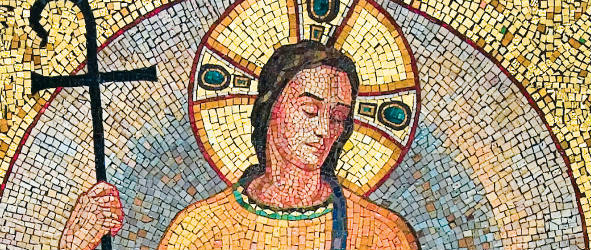


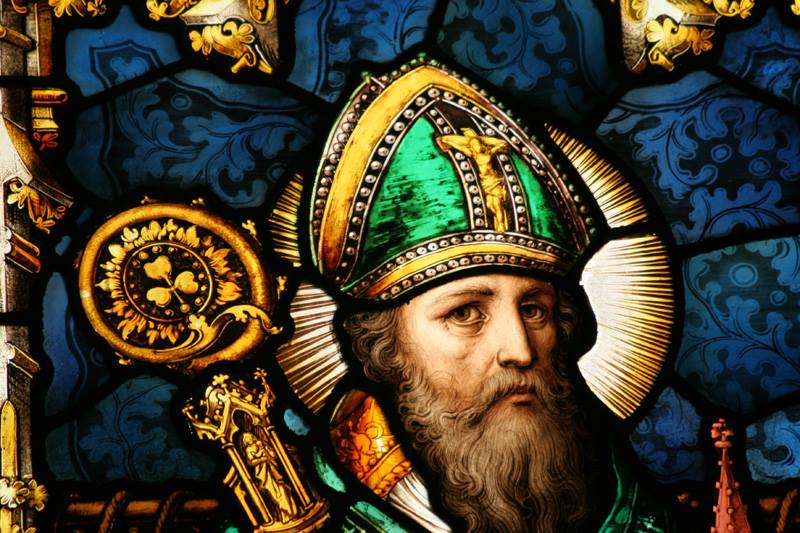

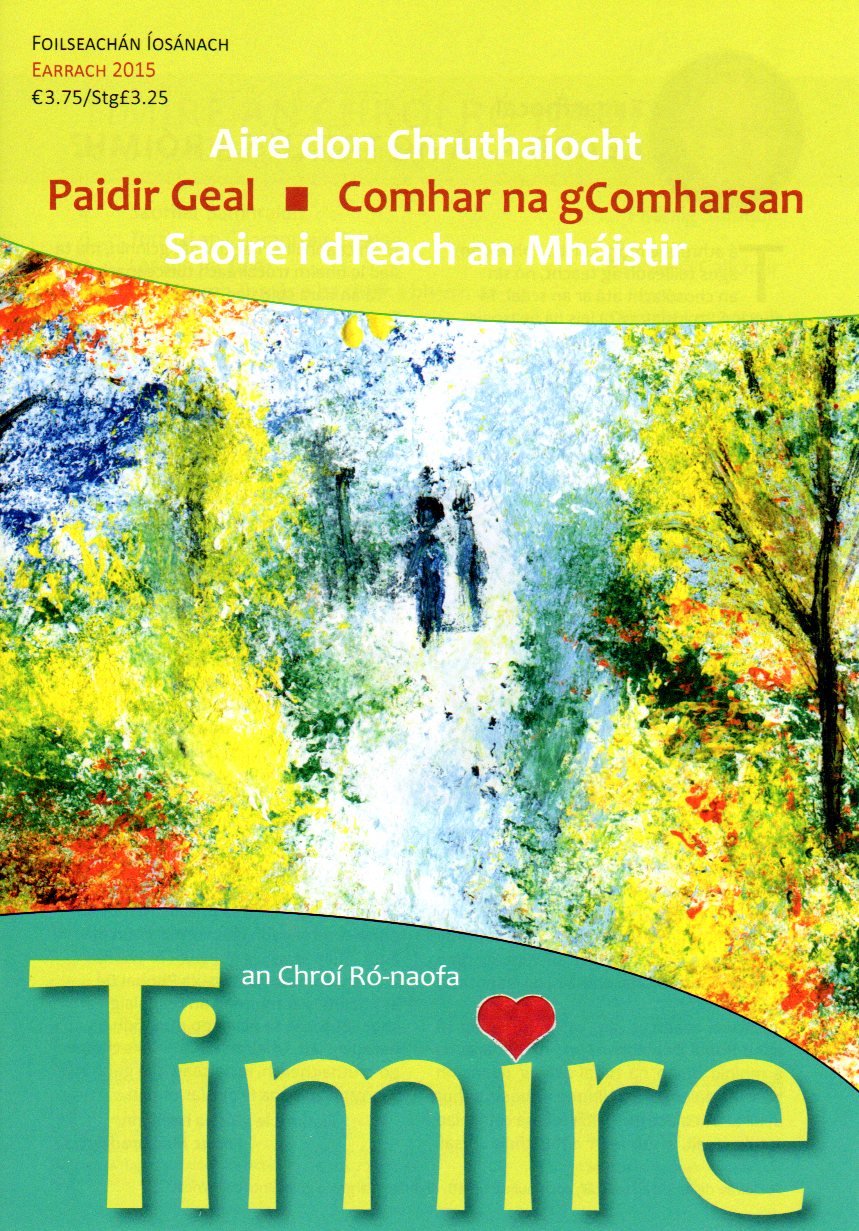
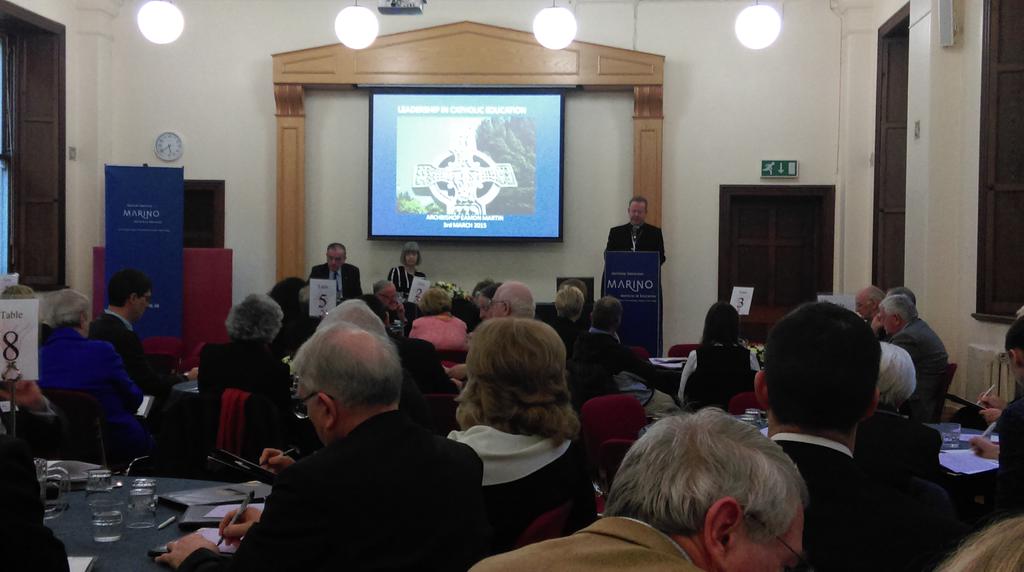
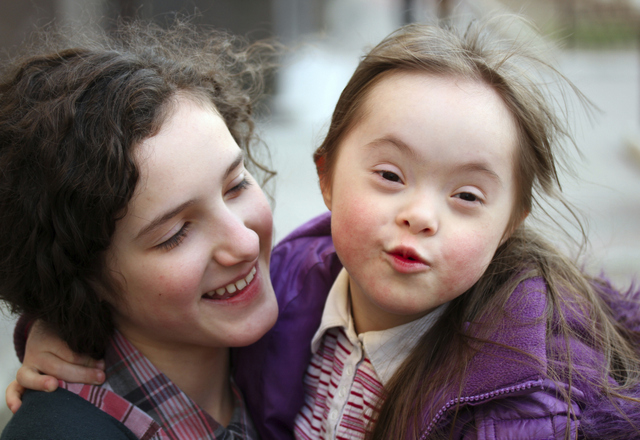


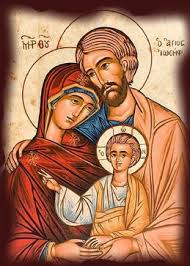
You must be logged in to post a comment.